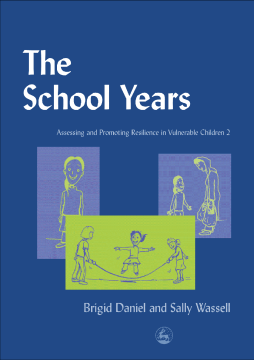
Additional Information
Book Details
Abstract
Helping practitioners in their work with vulnerable children of a school-going age, this workbook explores ways of nurturing resilience in different aspects of everyday life. Focusing on specific areas such as home life, talents and interests, friendships and social competencies, the authors show how to make thorough assessments and intervene in constructive ways.
They discuss nurturing factors relevant to children across the school years age range, such as moral reasoning and empathy, awareness of other people's intentions and the ability to see situations from different perspectives. The authors describe techniques for drawing out such positive behaviour in discussion and observation, through stories, questions and activities. With a strong emphasis on application and encouragement, this workbook is ideal for the busy social or family worker who wants practical guidance on evaluation, intervention and ongoing support.
This workbook stands alone but also forms part of a set along with two other resilience resources on The Early Years and Adolescence.
(Review for the 3 Volume Set)
'Designed to be used by practitioners in their work with complex people and their families and carers, these excellent workbooks provide some of the best materials I have seen for experienced and not so experienced practitioners. They should be on the shelves of every department working with vulnerable young people.'
Rostrum
Brigid Daniel is Professor of Social Work at the University of Stirling. She has worked with children and families in local authority social work and at the Centre for Child Care and Protection Studies at Dundee University. Sally Wassell is an independent consultant and trainer in childcare and an associate lecturer at Dundee University. Together with Robbie Gilligan, the two wrote Child Development for Child Care and Protection Workers, also published by Jessica Kingsley Publishers.
The workbooks are easy to read and use the same format in each volume. They explain resilience theory and encourage practitioners to place intervention and assessment within ecological framework. This entails considering what resources might be available to the child at each of three levels: child, family relations and wider community... The workbooks would be invaluable to parents/carers/foster families and those practitioners who have little child development knowledge. For students and occupational therapists who are new to working with children, they would be a very useful adjunct to learning, to the advanced practitioner they would be a refreshing revisit to child development in relation to occupational lifestyle.
Napot Journal
These three workbooks are a welcome and important addition to the tools available to childcare social workers, foster carers, residential workers and others involved in assessment and direct work with children and young people. Each book stands alone and could be used to inform and illuminate work with a particular child. Taken as a set they are a rich and lasting resource.
Adoption & Fostering
